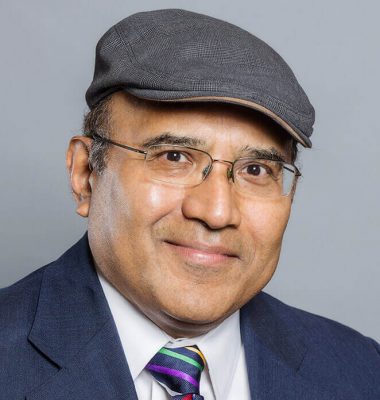Contribute
| Lokvani Talks To Partha Ghosh |
Ranjani Saigal
09/14/2018
As you know, since its inception in July 2001, The Boston Pledge (TBP) as an incubator of voluntary public service, is silently working on several different initiatives including (i)Entrepreneurship Development to facilitate bottom-up enterprising (ii) Annual conferences to raise consciousness of people on development issues (iii) Rural development (iv) Youth program to connect school students between privileged and underprivileged regions: Entrepreneurship Spring Program(ESP) our flagship project launched in 2001, has helped people at the base of the pyramid write more than 1000 business plans of which about 15% are being mentored and nurtured towards becoming full fledged businesses. The process essentially entails organizing 3 to 5 hour workshopsfor the participants who are typically high school drop-outs and/or unemployed covering three distinct objectives including: Confidence building, Business skill building and business plan writing and development, covering about 6000 men and women. At the completion of workshops, they are encouraged to submit their business plans following the guidelines/formats provided during the workshops. In parallel we launched the second initiative - annual conferences in the US on global issues related to equity, ecology and ethics to draw the attention of young professionals to raise their interest in public service. So far we have organized about 17 such conferences, each attended by 150 to 300 professionals The third focused on Rural Development was launched in 2007 to help the development a small village (Lakhikantapur) 70 miles south of Kolkata to become model village in the Indian subcontinent. Over the past ten years TBP have contributed to development of a library and guide the overall socio-economic development of the village. We are now building a rural Innovation Center in this village. The fourth launched in 2017 is a product of the above – TBP Youth program, which through a digital platform connect school students in developed regions with youth in rural areas in under developed regions. It is our hope this initiative will be able to raise substantive funds to make the digital platform fully operational there-by scale all the initiatives in a rapid fashion.
IIT Kharagpur Director and Distinguished Alumnus Partha S Ghosh (from Boston area), in the presence of Deans Stripathy & Baidurya Bhattacharya, President of IIT Foundation, Ranbir (Ron) Gupta, ED Erin Moran and other PAN IIT Alumni, announced setting up of Partha S Ghosh Leadership Academy at IIT Kharagpur with an initial seed grant of $1 million from Partha S Ghosh. This will be a unique unit in IIT Kharagpur that will foster leadership and champion causes on national and international impact. It is a first of its kind in the IIT system and will draw upon the deep experience not only of Partha S Ghosh but alumni and inspiring leaders worldwide. He talked to Lokvani about his motivation to establish this Leadership Academy.
So I believe the "IIT system" provides the most appropriate platform, where I believe we could begin the leadership movement, - and being an alumni of KGP I thought we could prove- in the model at KGP, and then roll it out across the IITs.
IITs are considered the most impactful institutions of higher learning in India. What do you think has been the greatest impact of IITs?
I think we proved to the world that IITians are smart, competitive and can perform any where in the world. Perhaps have given to the world a picture that India could nurture world class skills in its centers of learning. But I do think our impact on our nation has been minimal. Have IITians changed the lives of the people in lower 80% of the nation? Possibly no. We need to develop the next era of IIT with the purpose to address grass root issues of the nation. We have to cultivate a problem solving culture and leadership instinct that will draw more IIT graduates to solve the problems of the nation - around - access to clean water, access to low cost clean energy, social engineering models so that every village could become centers of economic excellence based its own culture and own language. "One global product from one village" should be the nation's moto and the IITians should be encouraged to make that happen, and perhaps should be embedded in the curriculum.
You are the founder of The Boston Pledge. Could you tell us about ‘this organization and the impact it has had so far?
You are a big proponent of the greatness of ancient Indian knowledge. Do you see any value in imparting that knowledge to the young students at IITs?
Absolutely. I have been very fortunate to be exposed to different dimensions of India's Vedic philosophy from a very early stage of my life. Though I may be familiar with 0.001 percent of the knowledge embedded in the Vedas and Updnaishads and Gita, but that knowledge itself I find is very powerful. In fact I want to see that leadership center find ways to impart knowledge from our past into the curriculum of the future. We need to do lot of work on this front, and will welcome the opportunity to discuss with you my thoughts on this in more details sometime soon.
What is your vision for India in 2040?
If India continues to move forward with current ways of thinking and working in place, we will be muddling along; - in terms of per capita income, income inequality, negative trade balance, we may not see significant change. The fractures in our socioeconomic fabric are too deep. Without fixing them it is difficult for any nation to truly rise.
You may also access this article through our web-site http://www.lokvani.com/
